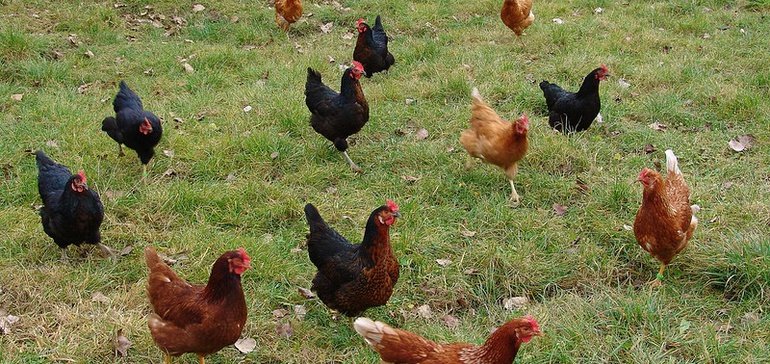How will plant-based chicken impact traditional poultry?

In his last in-person presentation before the COVID-19 pandemic curtailed many traditional get-togethers, Jayson Lusk, head of the agricultural economics department at Purdue University, spoke to the National Chicken Council about plant-based chicken and the potential it has to impact their business.
“I don’t think I told them anything they didn’t know,” Lusk recalled.
Plant-based chicken is getting to be big business. Sales grew 18% in 2020, totaling close to $272 million, according to statistics from SPINS. This increase is even before plant-based meat heavyweights Beyond Meat and Impossible Foods said they were getting into the chicken space — announcements made in the last couple of weeks. Beyond Chicken Tenders launched in some foodservice outlets nationwide in early July, while Impossible Foods is sharing its new chicken nugget product, scheduled to launch this fall, at a trade show this week.
But the chicken industry, for the most part, is relatively quiet about the potential risks that the plant-based industry could pose for its business. Chicken industry groups did not respond to Food Dive’s requests for comment.
This is in contrast to the beef industry, where industry stakeholders and state lawmakers responding to lobbying from those groups and constituents have been at the forefront of movements against plant-based meat.
The National Cattlemen’s Beef Association made preventing “false and deceptive marketing” of “fake meat” one of its 2019 policy priorities, which ushered in several state laws — and court cases that quickly followed — about labeling of plant-based products.
Lusk said there could be several reasons that chicken producers aren’t quite as loud in protesting against plant-based products. For starters, he said, the chicken industry is completely different from beef.
“Part of it is just probably the politics of how these things get talked about,” Lusk said. “Thinking about chicken as a more vertically integrated industry, people looking at those [startups], probably looking at some of that [market] data are thinking, ‘This isn’t the battle we want to fight.’ “
And at the moment, plant-based chicken sales are not threatening the traditional product. According to SPINS sales statistics from the Plant-Based Foods Association and The Good Food Institute, last year plant-based meat accounted for 2.7% of all retail dollar sales of packaged meat and 1.4% of retail sales when meat sold by weight was added. In order for plant-based meat to make a difference in producers’ bottom line, it needs to keep growing.
Michael Robbins, who is in charge of policy and communications for the Plant-Based Foods Association, which is at the forefront of legal fights about labeling, said he hasn’t yet seen a backlash specifically against alternative chicken. Nobody in the poultry industry has yet put up an organized fight to try to prevent plant-based chicken sales. And Robbins said that it could be because those companies are savvy to markets and trends.
“They’re doing a lot of market research and consumer research, and they see the same trends that everybody else is seeing — and accordingly are investing in the plant-based industry and launching plant-based products,” Robbins said. “So they have been allies in the fight to not restrict labeling.”
Several traditional chicken companies have also gotten involved in plant-based and blended products. Tyson’s Raised & Rooted line has plant-based chicken nuggets and tenders, while Canadian meat giant Maple Leaf Foods is the corporate parent of plant-based Lightlife.
However, Lusk said, the day that plant-based alternatives do threaten chicken producers’ business may be coming. The products themselves are reaching higher standards of quality, meaning that if consumers can easily find them and if the price can dip down below that of animal-based meat, there could be trouble down the road for conventional producers. Consumers who try the products and like them may not want to go back to animal-derived chicken.
Ironically, Lusk said, plant-based chicken can do to traditional chicken the same thing that chicken did to beef and pork: muscle its way into the top sales slot through being seen as healthier, more environmentally friendly and more affordable than other options. Fifty years ago, the average consumer ate more than twice as much beef compared to chicken — or 83.9 pounds of the red meat compared to 40.1 pounds of the poultry, according to USDA stats cited by the National Chicken Council. In 2020, the average American ate 97.6 pounds of chicken.
The aftermath of the COVID-19 pandemic could also make the traditional chicken industry more vulnerable to plant-based competitors, Lusk said. The world has seen the problems that can be wrought by a zoonotic illness. And in the recent past, poultry industries throughout the world have been impacted by bird flu. A U.S. outbreak in 2015 led to millions of birds being killed and egg prices skyrocketing. Recent bird flu outbreaks in Ghana and Vietnam are threatening the poultry industry in those countries. China recently reported a case of human transmission of avian influenza.
The consumer in 2021 and beyond, Lusk said, will be much more sensitive to what that kind of illness may mean — and could therefore be faster to turn away from chicken meat altogether.
Source: fooddive.com

